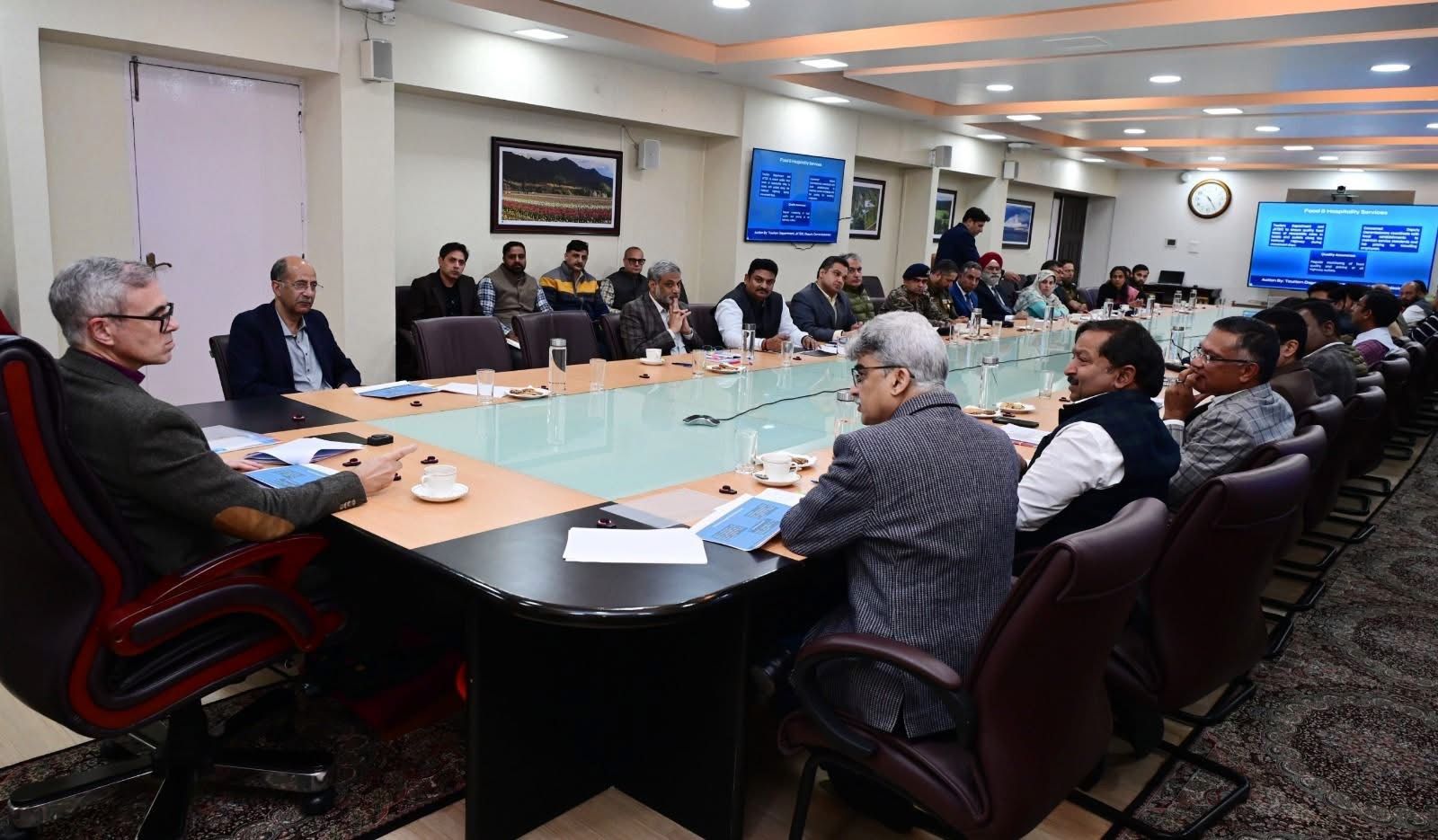
The Kashmiri apple, red and glistening, is more than just fruit. It is the livelihood of nearly 70% of Kashmir’s rural households, the backbone of the region’s economy, and a quiet ambassador of India’s agricultural diversity. But beneath the sheen of these apples lies a bitter truth: for decades, farmers have battled poor infrastructure, frequent road blockades, and inadequate storage facilities, leaving their produce to rot while markets across India await them.
In the past few weeks, the story of Kashmir’s apple growers once again hit national headlines. Torrential rains, flash floods, and repeated closures of the Srinagar–Jammu National Highway disrupted transportation at the peak of the harvest season. Truckloads of apples were stranded on choked highways, with farmers helplessly watching their earnings decay in cartons. The scene was a stark reminder of how fragile supply chains threaten not just Kashmir’s economy but also India’s promise of equitable growth.

Yet, amid this crisis, a ray of hope arrived. On September 11, the Union government flagged off the “Happiness Express” — a dedicated parcel train service from Budgam to Delhi. Designed to ensure swift transportation of perishable goods, the train marked a historic step for Kashmiri growers, linking their produce directly with the markets of northern India. This intervention is not just about logistics; it is about dignity, integration, and ensuring that the fruits of Kashmir’s soil are not left to rot on blocked roads.
The Apple of India’s Eye
Kashmir produces nearly 75% of India’s apples, contributing billions to the horticulture sector and employing hundreds of thousands in orchards, packaging, transport, and retail. For decades, apples from Sopore, Shopian, Pulwama, and Anantnag have travelled across India, adorning fruit stalls in Delhi, Mumbai, Bengaluru, and even smaller towns.
But behind this glossy picture is the perennial struggle of farmers against bottlenecks. Every harvest season, the Srinagar–Jammu Highway becomes a lifeline — and a curse. Frequent landslides, weather disruptions, and traffic mismanagement trap trucks for days. For perishable produce like apples, time is everything. Delays mean losses, sometimes up to 30–40% of annual income.
This year, floods worsened the situation. Growers lamented that despite bumper harvests, their returns were slashed because apples simply could not reach mandis on time. Videos of farmers dumping crates on the roadside in desperation went viral, sparking outrage across the Valley.

Such repeated failures in logistics are not merely “regional” issues. They raise larger questions: Can a nation aspire for economic self-reliance if its farmers, especially in a sensitive border region like Kashmir, remain vulnerable to poor infrastructure? And more importantly, can national integration be complete without ensuring economic justice to every state and union territory
The Train of Hope
The launch of the Budgam–Delhi parcel train, nicknamed “Happiness Express,” came as a timely response to these anxieties. The service allows farmers to directly load consignments onto railway carriages, bypassing clogged highways and ensuring faster delivery to wholesale markets in Delhi.
Railways officials confirmed that this initiative was specifically designed to support horticulture, given its central role in Kashmir’s economy. With refrigerated coaches and priority schedules, the train promises efficiency and reliability. For growers, it is not just a transport facility but a symbol of connection — a recognition that their produce matters to the nation’s food chain.

“This train is more than metal on tracks. It is a bridge between our orchards and the rest of India,” said one grower from Shopian. “Earlier, we prayed our trucks would not get stuck. Now, we pray more trains like this will come.”
Beyond Transport: A Question of Integrity
Infrastructure is rarely neutral. In places like Kashmir, it carries the weight of politics, identity, and belonging. When farmers in Maharashtra or Himachal get assured supply chains, but Kashmiris lose crops due to bad highways, it creates not only economic disparity but also emotional alienation.
By contrast, initiatives like the Happiness Express reinforce a sense of inclusion. They tell the orchardist in Pulwama that his sweat is valued equally as the farmer in Punjab or Gujarat. They remind India that integration is not just about borders and flags but about ensuring that every citizen’s work reaches the marketplace without discrimination.
National integrity is fragile when promises are unfulfilled. It strengthens when the state delivers tangible results — roads that connect, trains that carry, policies that uplift. In that sense, the parcel train is more than a logistical convenience; it is a test of India’s ability to treat Kashmir’s economy as integral to its national prosperity.
Challenges Ahead
Of course, a single train cannot resolve decades of neglect. Experts warn that:
Storage Facilities: Kashmir still lacks sufficient cold storage units, forcing farmers to sell at throwaway prices.
Market Access: Dependence on Delhi limits bargaining power; diversification to southern and eastern markets is needed.
Sustainability: If railway schedules are irregular or pricing uncompetitive, growers may still prefer road transport.
Climate Change: Frequent floods and erratic rainfall demand comprehensive agricultural insurance and climate-adaptive policies.
The Happiness Express is a beginning, not an end. Without parallel investments in infrastructure, market reform, and farmer welfare, it risks becoming symbolic rather than transformative.

Apples as Diplomats of Peace
Interestingly, apples have often been used as metaphors for Kashmir’s political journey. Once, separatists had called for boycotts of Indian markets, asking growers not to send apples outside. Many farmers resisted, choosing livelihood over politics. Their quiet defiance proved that economic survival often supersedes divisive rhetoric.
Today, as apples once again travel to Delhi on a dedicated train, they silently tell a story: of Kashmiris’ desire to be connected, not cut off. Each box of fruit crossing states is a statement of belonging — proof that integration is best achieved not through slogans but through opportunities.
The Integrity of a Nation Lies in its Orchards
The plight of Kashmir’s apple growers is not an isolated agricultural problem. It is a mirror reflecting the broader question of India’s commitment to inclusive development. When apples rot in stranded trucks, it is not just a loss of fruit but a dent in the promise of national unity.
The “Happiness Express” shows what is possible when the state intervenes decisively. It turns despair into hope, chaos into order, exclusion into belonging. But its success must inspire a larger transformation — better roads, storage units, credit facilities, and above all, respect for the dignity of farmers.
As one farmer in Sopore put it, watching the first train roll out of Budgam: “These apples are our blood and sweat. Let them not be wasted. Let them be India’s pride.”
If India can ensure that the Kashmiri apple finds its rightful place in every fruit basket across the country, then perhaps the promise of national integrity will no longer be just words — it will be tasted, crisp and sweet, in every bite.







